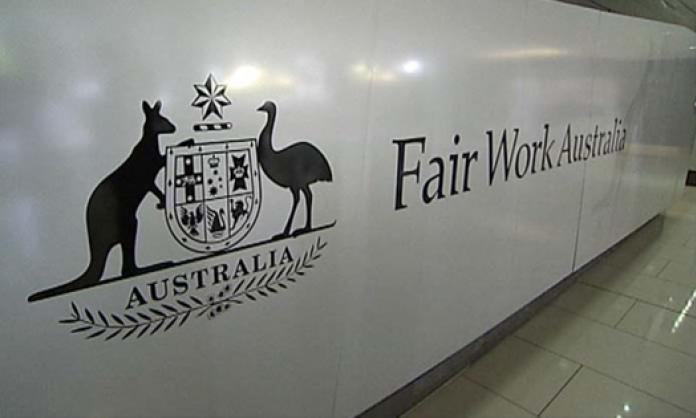The Fair Work Act that is the target of the ACTU’s Change the Rules campaign undermines wages and conditions and hamstrings trade unions. Passed by the Rudd Labor government in 2009, it is a particularly ugly piece of legislation, with many obvious problems.
The Howard government’s WorkChoices legislation put individual contracts at the centre of labour law. The Fair Work Act emphasises instead collective bargaining – contracts negotiated between unions and bosses. But everything about the act prevents workers from mobilising their strength to defend or advance their position.
Enterprise agreements can be negotiated only enterprise by enterprise. Each boss tries to get their workers to work harder, for longer, for less so they can produce goods and services more cheaply than their rivals. Workers are put into competition with each other. The bosses think of every way to set us against each other: performance-based pay, bonuses and promotions, racism and intimidation.
Trade unions mitigate this competition by uniting workers against employers. The more workers can be united in an industry, the stronger our position. The strong support the weak; no-one is left behind. If we can bring an entire industry to a halt by going on strike as a collective, that gives us more power to make a better deal.
Enterprise bargaining smashes this solidarity. It means that workers must depend on the strength we can muster in each workplace. Every group of workers must fight from their own corner, isolated from every other. The Fair Work Act bans industry-wide agreements (except in exceptional circumstances), bans pattern bargaining (whereby workers submit identical claims across multiple enterprises) and also bans any group of workers taking action to support another.
The result is widely varying wages and conditions between workers, not just in the same industry but even among those working for the same company. This gives the bosses every opportunity to play us off against each other. Mining multinational Glencore has separate agreements at each of its mine sites and uses the conditions at the weaker sites to destroy conditions at the stronger, as it did with the Oaky Creek mine in Queensland recently.
Enterprise agreements are only one or two steps removed from individual contracts.
Enterprise agreements are not even agreements in the general sense of the term. Draft agreements can be drawn up by employers and circulated individually among staff. If a majority approve of the “agreement” in a ballot run by the Australian Electoral Commission, the boss can apply to register the agreement. There is no requirement for collective consultation at any point.
Nor, despite the requirement that bosses and worker representatives “bargain in good faith”, is there any requirement for bosses to do much more than simply attend negotiations with unions. Employers may hold meetings with staff in the union’s absence, send final offer packages to workers’ homes or ballot workers on an agreement despite the union’s insistence that it wishes to continue negotiations.
The bosses can even “negotiate” enterprise agreements with a handful of employees and then make that the default agreement for thousands of workers subsequently employed.
Fair Work even stipulates what can and can’t be in an agreement. It cannot include a clause banning the use of labour hire workers. It cannot stipulate conditions under which workers can be paid for periods of industrial action or require that non-union members pay the union a bargaining services fee.
The problem is not just negotiating agreements. The act’s restrictive right of entry provisions mean that it’s difficult for union representatives even to get through the front door. The act spells out where meetings can be held, giving the boss opportunities to intimidate the workforce.
Then there is the ongoing gutting of the award system, which, prior to enterprise bargaining, formed the basic framework of conditions for 80 percent of the workforce. The act continued the process, in train for two decades, of reducing awards to mere “safety nets”. “Modern industry awards” stripped pre-existing conditions, and the review process resulted in cuts to penalty rates for retail, fast food and hospitality workers in 2017.
The minimum wage element of the award system has been allowed to fall further and further behind the going industry rate, giving employers every incentive to rip up agreements to push workers back onto the increasingly eroded award conditions.
The right to strike
Bargaining without the right to strike is no more than begging. That’s what the act has us do. Every which way you turn, it limits workers’ ability to walk off the job.
It says when you can strike – only on the expiry of an agreement, only after the Fair Work Commission has given you the right to ballot to take action, only after you have voted by absolute majority to take action (a process that can take weeks to organise), only within 30 days of voting to doing so and only after you have given the employer three days’ notice.
Further, workers can strike only in pursuit of a condition allowable in an enterprise agreement. Workers cannot strike, for example, for a cap on casual labour or employment of contractors, or for an agreement covering two or more enterprises.
They cannot strike to ban environmentally destructive practices by their employer. They cannot strike against a racist supervisor or against sexual harassment. They cannot strike in defence of a victimised union delegate or a worker whose wages have been unfairly docked by the boss. Workers cannot strike against draconian industrial laws, against a harsh federal budget, for better health and safety laws or against a war.
Only after workers have tied themselves in knots are they able to take action shielded from common law prosecution by an employer.
But that’s not the end of it. As NSW train drivers discovered earlier this year, even after the workers have jumped through every hoop, an employer or the minister can apply to the Fair Work Commission to terminate the bargaining period and workers’ right to take action, on the grounds of “significant damage to the Australian economy or an important part of it”.
The only strikes that are allowable under the act are strikes that are ineffective. Any union flouting an order to cease or desist from industrial action is liable to hefty fines.
Labor’s responsibility
The Fair Work Act we are now fighting is the ALP’s present to the workers’ movement. The minister responsible for its passage was Julia Gillard. Despite condemnation by labour lawyers and warnings by the International Labour Organization that the act violated its conventions in important respects, the trade union leaders for the most part shut up about its glaring deficiencies. We are paying the price for their silence.
We have heard little from Bill Shorten about what an incoming Labor government would do about this rotten legislation, beyond overturning the cuts to penalty rates. But the fact that these are Labor’s laws, that the party’s current leaders defended them, including Shorten when he was workplace relations minister in the Gillard government, gives us ample reason not to trust them this time around.
We must be prepared to fight the ALP, to get genuine commitments to substantially overhaul the act. And we must prepare now to continue to campaign for a better deal if Labor fails to change the rules if it wins office.











